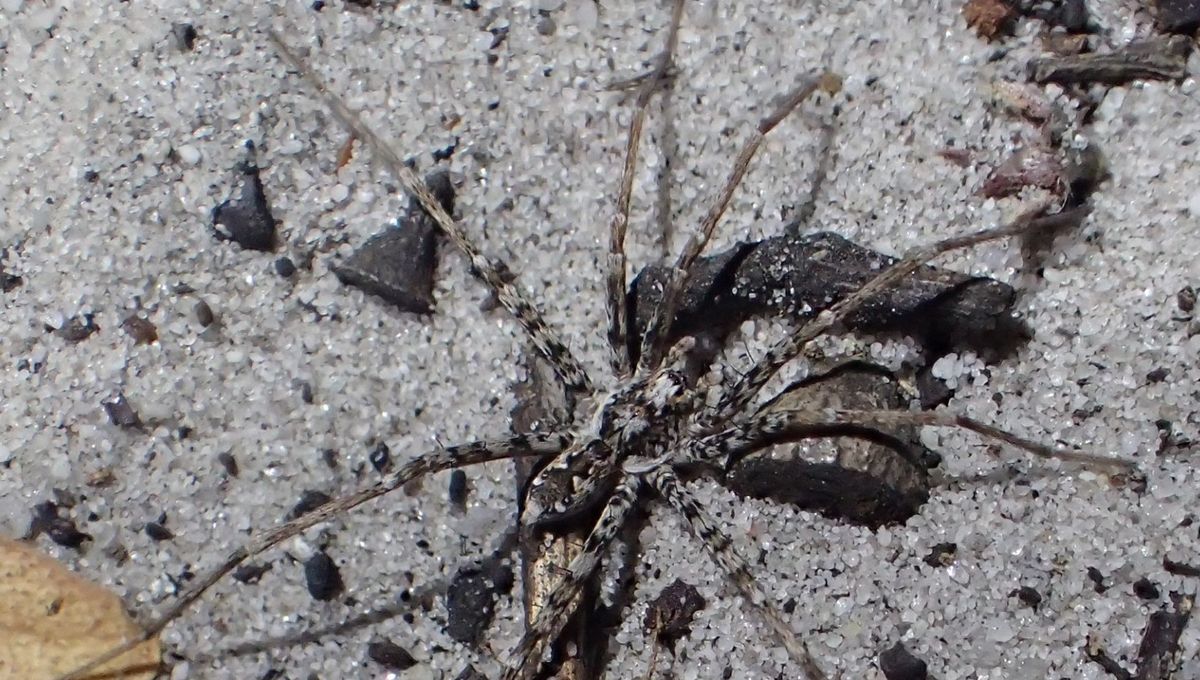
Australia, land of egg-laying mammals, sex-crazed crocodiles, and one of the planet’s most dangerous plants, has a raft of new eight-legged friends to add to its already impressive complement of arachnids. A recent monograph describes, for the first time, 48 species of ground-hunting spiders from the family Miturgidae.
“I was surprised at how many species were described in this paper, I knew there were a lot, but the number was far higher than I predicted,” said lead author Dr Robert Raven, who carried out the research whilst working at the Queensland Museum Network, in a statement.
A taxonomic project on this scale is not something scientists can cobble together in a couple of months. It has taken decades of meticulous work by Raven and colleagues to formally categorize and describe all the new spiders, which are representatives of five different genera: Miturgopelma, Knotodo, Xeromiturga, Miturgiella, and Xistera.
“Our taxonomists are like detectives in the work they do to formally describe new species to science,” explained Queensland Museum Network CEO Dr Jim Thompson. “Quite often species are obtained and become part of the collection, but they may not be formally known to science. That’s where the work of our researchers, scientists and honoraries come in.”
To add to the difficulty, the history of the family Miturgidae has been a long and confusing one. Since it was first described by French naturalist Eugène Simon in 1886, it’s been revised several times, with various species and subfamilies being added or taken away as scientists strove for the most accurate classification possible.
The new species can be found in dry habitats across Australia, especially in eucalypt forests, brigalow, mallee, heath, and desert environments. Raven described them as “nocturnal and fast-moving”, with body lengths of up to 10 millimeters (less than half an inch) – if you were envisioning something similar to the gargantuan Goliath birdeater tarantula, this may come as something of a relief.
As the description “ground-hunting” suggests, these guys don’t spin webs, instead prowling along the floor of their habitat at night in search of prey.
With the identification of new species comes the task of naming them. In this case, the team chose to honor several big names within the arachnid community, including former host of Australian TV show Totally Wild, Ranger Stacey Thomson.
“I spent many hours filming spider stories over the years with Robert and the team at Queensland Museum and it was always amazing,” Ranger Stacey said after the announcement of her namesake, Miturgopelma rangerstaceyae. “I learnt so much about arachnids, their biology and unique behaviours and I hope that these stories helped show children around Australia what incredible creatures spiders are.”
Also among those commemorated were Dr Barbara Baehr (M. baehrae), a German biologist who has described more Australian spider species than any other person this century, and photographer and arachnologist Caitlin Henderson, who herself collected the specimen of M. caitlinae, the species that now bears her name.
It’s fair to say spiders are not universally loved. You might argue that’s fair enough, since many look quite intimidating, and there’s the small matter of those whose bites can kill – or at least, give you a very bad time. But if you can see past all those legs, spiders have a lot to recommend them, from their stunning good looks to the fact they can make excellent house guests.
With this smorgasbord of brand-new species to learn about, the natural world is proving once again that it has so many secrets left for humans to discover.
The study is published in Zootaxa.
Source Link: Australia Has 48 New Spiders (As If They Needed Any More)